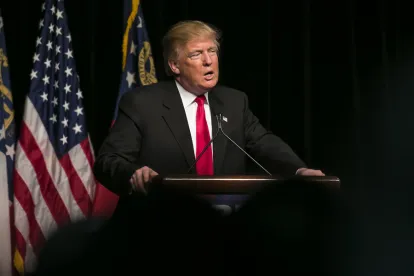Over the weekend, President Trump signed an executive order purporting to defer the payment of the employee’s share of the Social Security portion of FICA (payroll) tax from September 1, 2020, until December 31, 2020. The order is limited to only the employee’s share of the Social Security portion of the payroll tax, which is currently set at 6.2%. The order does not affect the Medicare portion of the payroll tax (1.45%), nor does the order affect the employer portion of the payroll tax, so these will still have to be withheld (where applicable) and deposited on a timely basis. The order also limits deferrals to employees with biweekly, pretax income of less than $4,000, or a similar amount where a different pay period applies. This roughly equates to an annual salary of $104,000. Importantly, the order is not a suspension of the payroll tax (a “payroll tax holiday”), but merely a deferral. The president directed the Treasury to seek ways to implement a full suspension at a later date, including by legislative action.
The order does not dictate how employers are supposed to comply with its terms, although it is anticipated that the Treasury will provide additional guidance relating to compliance. Until additional guidance is issued, an employer is left with three options:
-
Not collect the employee portion of the payroll tax subject to deferral, which would put more money in employees’ pockets at this time.
-
Under this approach, the employer would likely collect the amounts via withholding at a later date (likely the last full payroll period in December, assuming the employee is still employed by the employer) and remit such amounts to the Treasury on or about December 31, 2020 (the exact due date for remitting the taxes after the order ceases to apply is uncertain). This would cause an employee to have significant withholding on their compensation during the payroll period(s) during which the payroll tax is subsequently withheld.
-
-
Collect the payroll tax from employees via normal withholding and deduction, and remit such amounts to the Treasury on or about December 31, 2020 (the exact due date for remitting the taxes after the order ceases to apply is uncertain).
-
Under this method, the employer would have the benefit of the extra cash on an interest-free basis, similar to the current CARES Act payroll tax deferral (see below). However, this option undercuts the stated intent of the order to place additional money in the hands of employees and is unlikely to be permitted by future Treasury guidance.
-
-
Collect the payroll tax from employees via normal withholding and remit the tax to the Treasury on a normal depositing schedule.
There has been debate over the legality of the executive order. It appears that the Treasury has the authority to defer collection of FICA taxes, but the Treasury cannot abate or suspend the collection of such taxes without authorizing legislation — for example, during the Obama administration, there was a payroll tax suspension implemented with congressional approval. It remains to be seen whether Congress will retroactively suspend the payment of the payroll tax subject to the executive order because both parties have previously declined to include payroll tax suspension in proposed legislation.
At this point, most employers do not feel comfortable taking the approach outlined in bullet point one above (not collecting the payroll tax), absent further Treasury guidance such as a non-enforcement announcement. We agree with this approach and recommend that an employer withhold the full amount of an employee’s FICA tax until further guidance is issued. Employers may receive pushback from employees who heard that the bill was intended to provide employees with additional compensation. Employers may want to explain to employees that the order is not a suspension of the payroll tax because the employee will be obligated to pay the amounts by year-end.
There is also concern among practitioners regarding continuing to withhold the tax because most state employment laws do not permit withholding amounts from an employee’s compensation without advance authorization or a statutory authorization to withhold. Absent additional guidance from Treasury on implementation, employers should consider taking the position that the order does not eliminate the statutory requirement to withhold the taxes — i.e., the order only permits the employer to elect to defer the withholding until a later date.
On a final note, this order does not affect the payroll tax deferral provisions of the CARES Act, of which many employers are currently taking advantage. Under the CARES Act, employers are allowed to defer payment of the employer share of Social Security tax on wages (6.2% on covered wages) accrued from the effective date of the CARES Act through December 31, 2020. The deferred payments must be paid over two years, with one-half of the amount otherwise required to be paid due by December 31, 2021, and the other half of the amount due by December 31, 2022.





 />i
/>i
